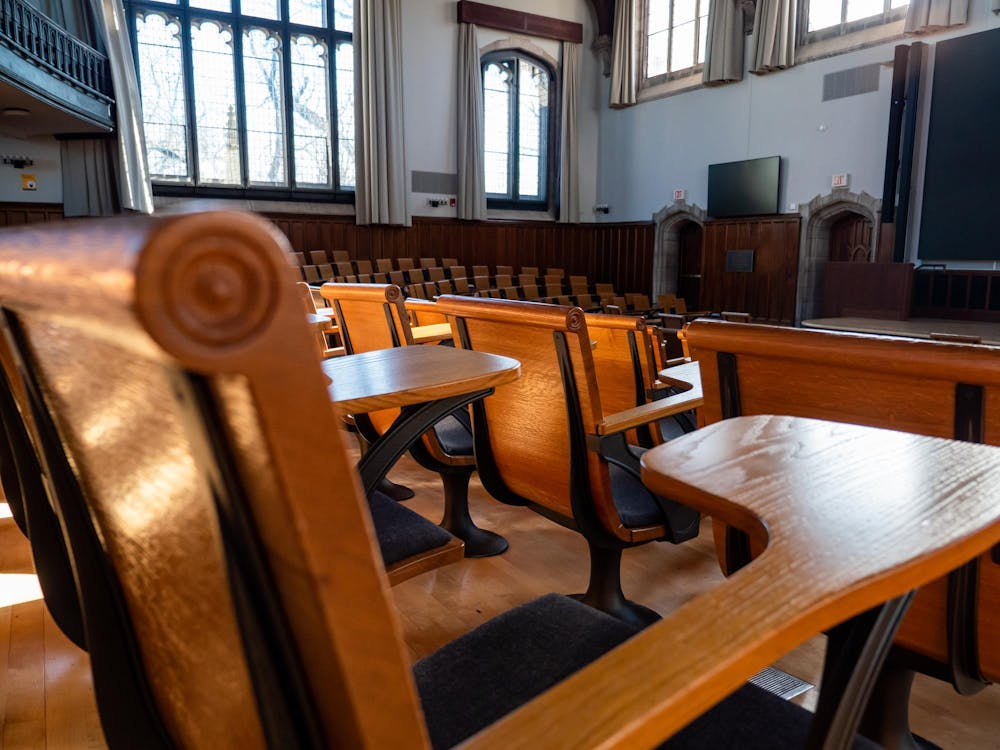No need for Asian-American Studies
We were not there for the 1995 ethnic studies sit-in, described in the Feb. 9 issue of the 'Prince.' However, as Asian-Americans, we would not have been proud of any commitment to an Asian-American Studies Program. Let us step back and contemplate for a second the reasoning behind an Asian-American Studies Program. We can find several reasons against such a program. What exactly do Asian-American studies entail or any such studies for that matter?
Ethnic studies exist, we believe, as a study of a civilization or a culture. Asian-American culture, unlike Jewish culture or African-American culture, has no distinct established identity as of yet. We act as merely a bridge between first or second-generation immigrants and the new "American" culture. At most, Asian-American culture is a hodgepodge of two cultures — Asian and American. When has there been a study of a bridge between two cultures and not a legitimate culture itself? Chinese-American culture only started with the 1890s influx of railroad workers.
Another argument against this type of program is the universality of academic studies. We think the motivation behind Asian-American studies should not be the "Asian-American" experience, but the universalized experience of multicultural integration — the most pronounced universal experience in our current globalization. The many aspects of a multicultural study are relevant to all ethnic minorities and must not become specified by each ethnic group and their "American" experience. Additionally, this multicultural experience can be understood just by learning from our long standing departments of sociology, cultural anthropology, philosophy, and East Asian studies. Diverting resources from an Asian-American Program towards these departments will not only enhance the quality of each respective program, but will also help promote the opportunities for interdisciplinary research.
The existence of the East Asian Studies Program itself is the solution to our "need" for Asian-American studies. To learn about our heritage while learning about our American culture in other humanistic departments itself is a great tool towards understanding each subjective Asian-American experience. Any knowledge that stems from an Asian-American Studies Program can definitely be acquired by any student who shows interest in these two respective fields and can combine them in his curriculum. Thus, an Asian-American Studies Program is rather unnecessary.
This issue proposes one important question: What exactly constitutes a necessary area of studies? By allowing our most vocal minorities (Asian, in particular) to create an ethnic study based upon themselves is, to us, quite preposterous. Why not use our minority voice to propose more legitimate studies. We can think of one easy example that is distinctly lacking in our academic curriculum. This is the study of the 3,000-year-old civilization of South Asia. This is a more worthwhile venture than the study of a 100-year-old culture we describe so vaguely as "Asian-American." Thomas Tso '02 and Hao Kueh Yuan '02







